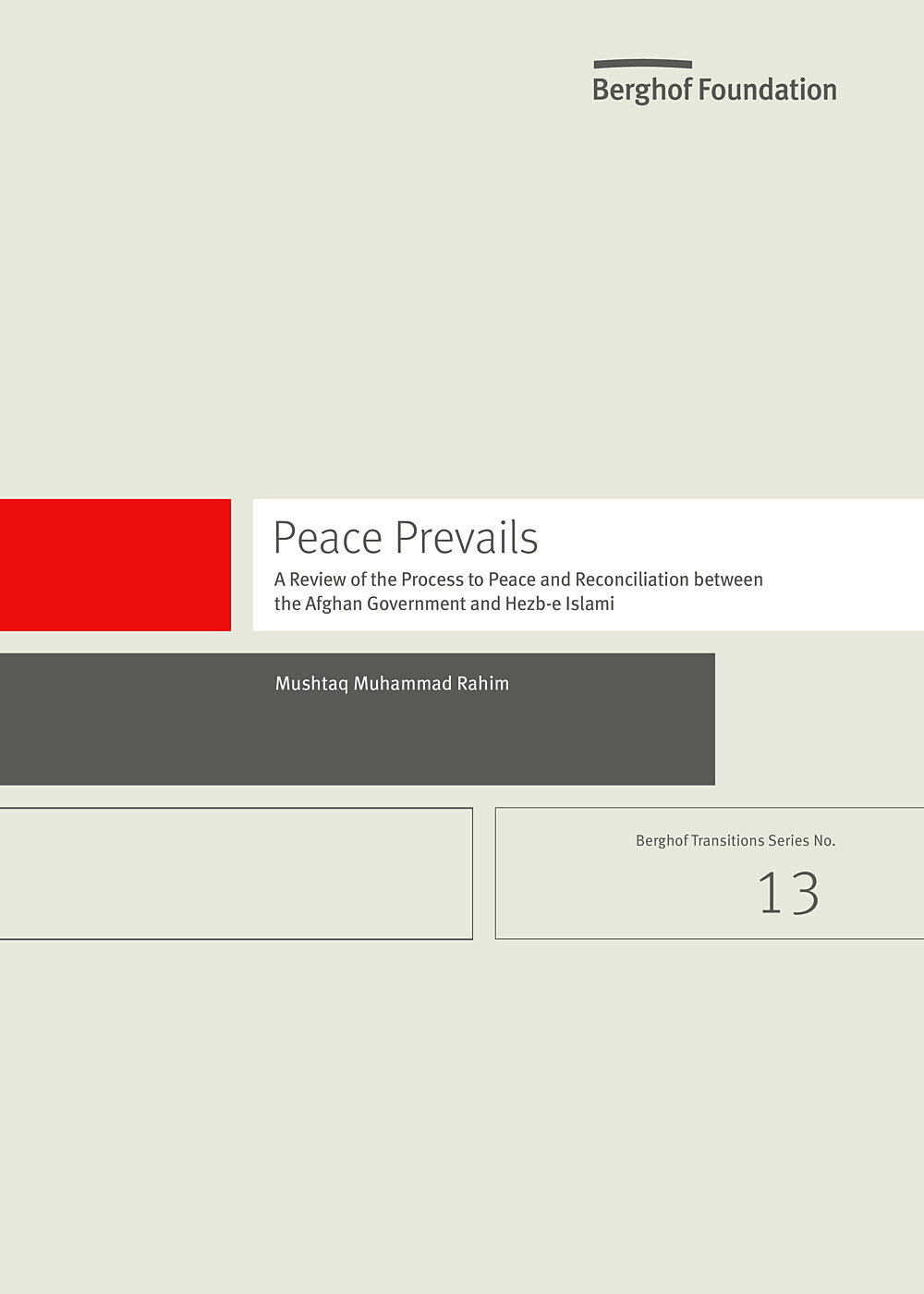FEATURE | 15 Jan 2019
New publication on conflict resolution in Afghanistan
Insights from the historic peace deal with Hezb-e Islami

When the government of Afghanistan and Hezb-e Islami signed a peace agreement in 2016, efforts to pacify the protracted conflict achieved a major breakthrough.
When the government of Afghanistan and Hezb-e Islami [Islamic Party of Afghanistan] signed a peace agreement in 2016, efforts to pacify the protracted conflict achieved a major breakthrough: the first peace deal with an armed opposition group. Yet the subsequent implementation of the agreement is facing severe challenges.

The new issue of the Berghof Foundation’s Transition Series “Peace Prevails: Review of the Process of Peace and Reconciliation Between the Afghan Government and Hezb-e Islami” is based on in-depth interviews with negotiators and facilitators of the peace deal.
The report identifies both enabling factors that paved the way for the successful peace process, and impeding factors that have jeopardised its implementation phase.
In order to learn lessons for future more complex peace processes, the study provides a series of recommendations. It highlights in particular:
- the need to initiate confidence building measures with militant opposition groups on the part of the Afghan government and its High Peace Council
- the importance of training and capacitybuilding to prepare key negotiators for engaging effectively throughout all phases of a peace process
- the need for consensus and unity within the negotiating team on the goals and parameters of the peace process
- the importance of involving trusted third parties and technical experts
- the critical role of strategic communication in order to get citizens’ buy in, to manage expectations and to convey the likely impact of a successful agreement to the wider public.
This report was produced in the framework of our National Dialogue Handbook project funded by the German Federal Foreign Office. The report hence also brings out important insights for national dialogue processes, arguing that negotiations with armed groups need to be anchored into a wider framework for peace and reconciliation. For example, the paper highlights the role of the 2010 National Consultative Peace Jirga as a factor of ‘ripeness’ which prepared the ground for the 2016 peace deal. It also mentions the need for inclusive consultations with civil society and smaller political parties beyond the ruling elites throughout the peace process.
To read the report in English, click here. It is also available in Dari and Pashto. For more information on this study or the Berghof Transition Series, please contact the series editor Dr. Véronique Dudouet.
For questions related to the Berghof Foundation‘s National Dialogue project please contact Luxshi Vimalarajah.
Up-to-date information on other new publications, events and activities of the Berghof Foundation can also be found on Twitter.
Media contact
You can reach the press team at:
+49 (0) 177 7052758
email hidden; JavaScript is required


